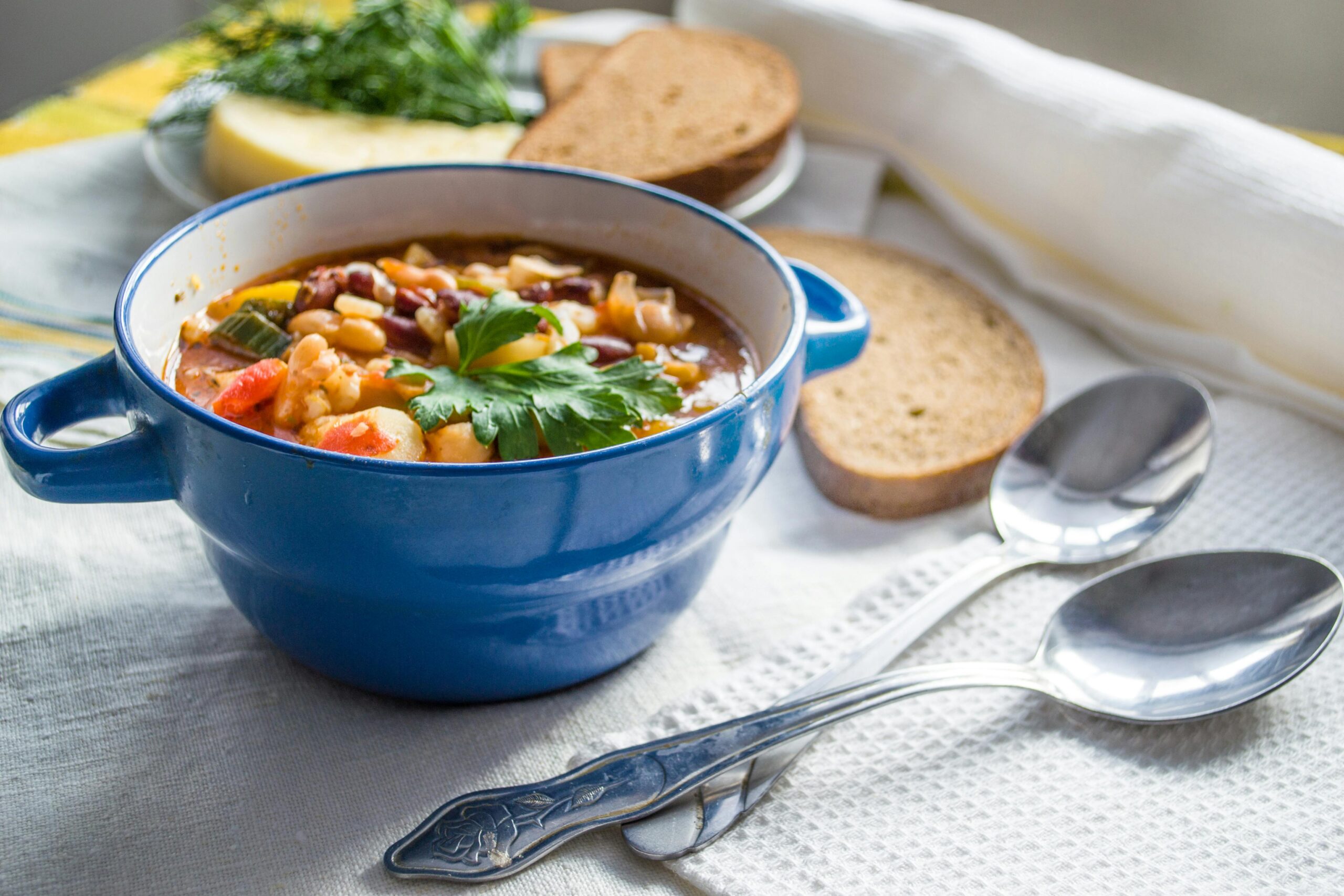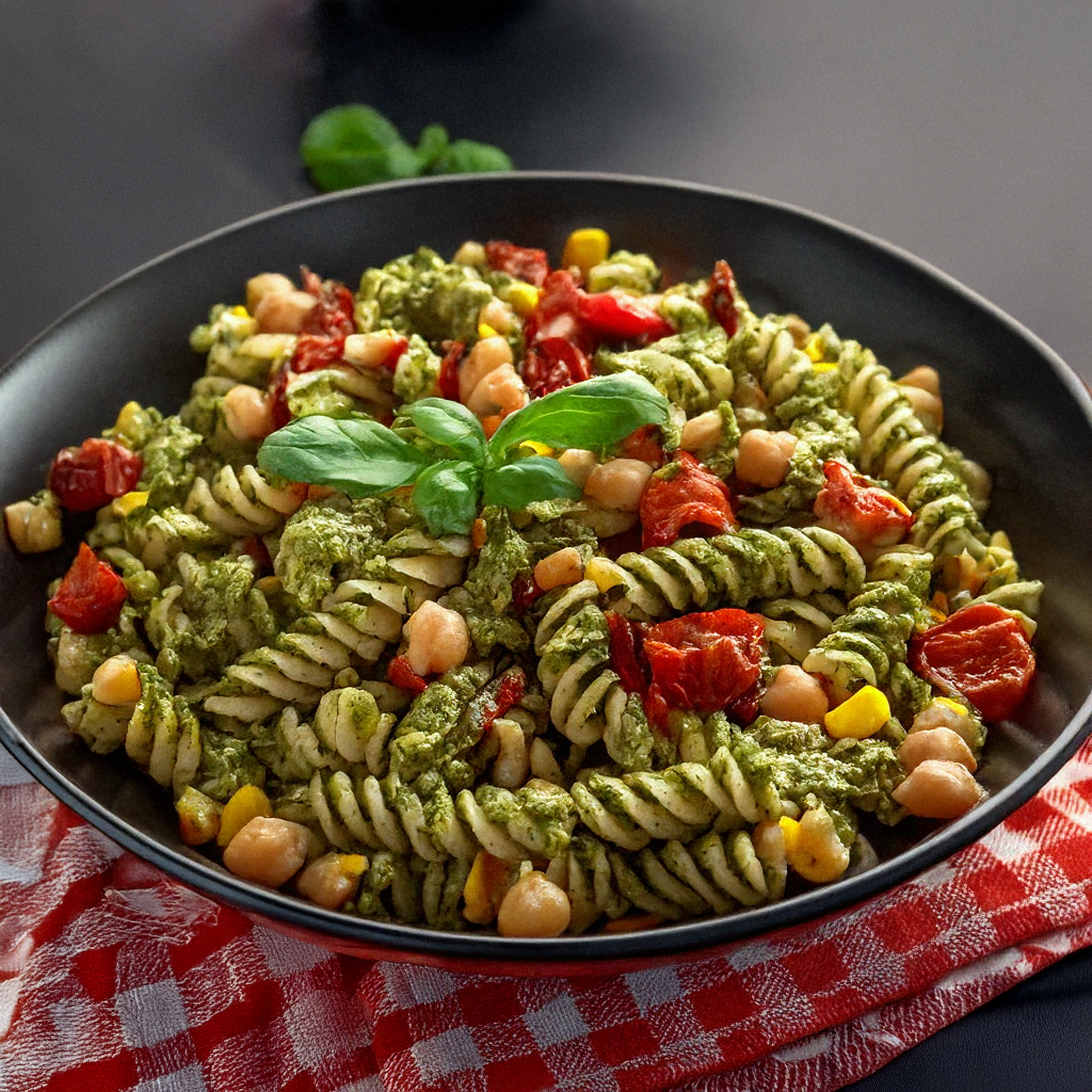
Boosting Your Immune System in the New Year – Plus Bonus Recipe
It’s time once again for the tradition of making resolutions for the new year. Every new year, 3 in 10 adults in the US sets goals to make improvements in their lives with 79% of those goals related to health improvement. Often the focus is on losing weight with restrictive diets or starting an aggressive exercise program. A more worthwhile health improvement strategy may be to take steps to boost your immune system, since beginning around age 60 the immune system becomes less efficient increasing the susceptibility to infection and disease.
Introduction to the Immune System
The immune system works to protect our bodies from harmful substances and germs, or disease-causing microorganisms. It is a complicated network of cells, tissues, and organs that work together to protect the body from harm. We are born with some innate immunity and develop more specific immunity, or acquired immunity, over time through exposure to various germs that trigger antibody production to fight infection.
Ways to boost your immune system include the following:
- Eat well: A balanced diet provides nutrition to all cells, including immune system cells.
- Be physically active: Activity promotes the recirculation of key immune cells and is anti-inflammatory.
- Get good sleep: Sleep and our circadian rhythm strongly influence immunity.
- Minimize stress: Long term stress can suppress immune response.
- Limit alcohol intake: Alcohol can inhibit some pathways of the immune system.
- Stop smoking: Smoking can disrupt immune mechanisms.
- Stay hydrated: Hydration helps your body naturally remove bacteria and toxins that cause infection.
Immunity and Nutrition
According to a 2023 review article in the scientific journal Food Science and Nutrition, consuming enough water, minerals like zinc and magnesium, micronutrients, herbs, and foods rich in vitamins C, D, and E, and adopting a healthy lifestyle can enhance health and immunity and help prevent infections. Like all cells, immune system cells require energy, or calories, as well as cofactors provided by macronutrients like protein and micronutrients like vitamins and minerals. Some foods are considered immune-boosting because they are rich in nutrients, antioxidants, and bioactive compounds, like fruits, vegetables, and whole grains, to name a few.
Some specific nutrients benefit immune health including:
- Beta carotene: In plant foods that are usually yellow/orange/green in color like carrots, spinach, lettuce, tomatoes, sweet potatoes, broccoli, cantaloupe, and winter squash
- Vitamin C: Citrus fruits, berries, tomatoes, peppers, broccoli and Brussels sprouts.
- Vitamin D: Fatty fish and eggs as well as milk and juices fortified with vitamin D
- Zinc: Meat, shellfish, dairy, wheat germ, beans and nuts
- Protein: Present in all animal products like meat, dairy, eggs, as well as nuts, beans, soy, and lentils.
- Probiotics: Good bacteria found in cultured dairy like yogurt as well as in fermented foods.
The Mediterranean Diet is a way of eating that encompasses all the nutrition guidelines to help boost your immune system. In addition, this way of eating is easy to follow and benefits heart health and overall well-being. It is not a quick fix or a strict diet, but rather a lifestyle backed by science that is likely the best way to eat to benefit heart health while providing immune boosting benefits.
Mediterranean Diet Guidelines:
- Fish: 3 servings per week (one serving=3-4 ounces)
- Extra virgin olive oil: 1 to a maximum 4 Tablespoons per day
- Fruit: 3 servings per day (one serving=1/2-1 cup)
- Vegetables: 3+ servings per day (one serving=1/2 cup cooked or 1 cup raw)
- Legumes: 3 servings per week (one serving=1/2 cup)
- Nuts: at least 3 servings per week (one serving=1/4 cup nuts or 2 Tbsp nut butter)
- Whole grains and starchy vegetables: 3-6 servings per day (one serving: 1/2 cup cooked vegetable, 1 slice bread, 1 ounce cereal)
Try this tasty soup recipe with immune boosting ingredients like olive oil, beans, carrots, and garlic.
Vegetarian Minestrone Soup
adapted from loveandlemons.com
Serves: 4-6
Ingredients
- 2 tablespoons extra-virgin olive oil
- 1 medium yellow onion, diced
- 2 medium carrots, chopped
- 2 celery ribs, thinly sliced
- ½-1 teaspoon salt
- Freshly ground black pepper
- 3 garlic cloves, grated
- 1 (28-ounce) can diced tomatoes (no salt added or low sodium)
- 1½ cups cooked white beans or kidney beans, drained and rinsed
- 1 cup frozen green beans
- 4 cups vegetable broth, low sodium preferred
- 2 bay leaves
- 1 teaspoon dried oregano
- 1 teaspoon dried thyme
- ¾ cup small pasta, elbows, shells, orecchiette
- ½ cup chopped fresh parsley
- Red pepper flakes, optional
- Grated Parmesan cheese, optional, for serving
Instructions
- Heat the oil in a large pot over medium heat.
- Add the onion, carrots, celery, salt, and several grinds of black pepper, and cook, stirring occasionally, for 8 minutes, until the vegetables begin to soften.
- Add the garlic, tomatoes, beans, green beans, broth, bay leaves, oregano, and thyme. Cover and simmer for 20 minutes.
- Stir in the pasta and cook, uncovered, for 10 more minutes, until the pasta is cooked through.
- Season to taste and serve with parsley, red pepper flakes, and parmesan, if desired.



